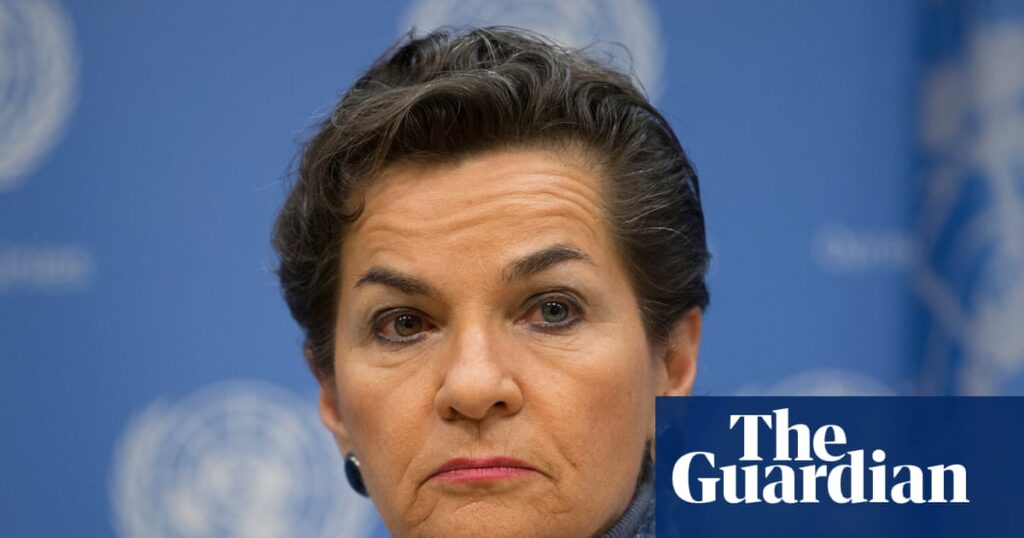
A former UN climate chief has called on the Australian government to set an ambitious greenhouse gas emissions reduction target of at least 75% by 2035. This recommendation aligns with the advocacy of over 350 businesses, suggesting that such a target could benefit the economy more than a less aggressive goal.
The appeal comes from Christiana Figueres, a key figure behind the 2015 Paris Agreement during her tenure as executive secretary of the UN Framework Convention on Climate Change. Her intervention precedes Australia’s forthcoming announcement regarding its climate commitments, expected next month.
Currently, the Australian Cabinet awaits formal guidance from the Climate Change Authority, led by former NSW Liberal Treasurer Matt Kean. A decision on the target is anticipated before Prime Minister Anthony Albanese’s participation in the UN General Assembly in New York in late September.
Background and Context
In a consultation paper issued last year, the Climate Change Authority proposed a 2035 target of reducing emissions by 65% to 75% below 2005 levels. The paper indicated that achieving such a target would be ambitious yet feasible, contingent on concerted actions from governments, businesses, investors, and households. Since then, the government has faced lobbying from various groups regarding the appropriate target to set.
Figueres argues that a 75% reduction target should not be viewed as a burden but rather as “Australia’s ticket into the prosperity of the future.” She believes that this ambitious goal could enhance Australia’s chances of hosting a major UN climate summit in Adelaide in November 2026.
Australia’s Bid for COP31
Australia is competing with Turkey to host the COP31 summit, with the decision pending under the UN’s consensus decision-making process. Figueres emphasized that “the new global economy is rising, powered by clean energy and green industry,” and that Australia, with its abundant sun and wind resources, critical minerals, and skilled labor, is well-positioned to lead.
Prime Minister Albanese has the opportunity to demonstrate Australia’s leadership at COP31 and beyond, according to Figueres.
Economic Implications
A report commissioned by the Business for 75% group, supported by companies like Future Group, Fortescue, Atlassian, Canva, Ikea, and Unilever, suggests that a 75% reduction target could boost Australia’s GDP by $370 billion by 2035 compared to current projections. The report highlights that the economic benefits of such an ambitious goal would surpass those of a 65% target.
Meanwhile, a separate report from Climate Analytics, set to be released on Monday, recommends an emissions reduction target of about 81%, within a range of 76% to 89%, to align with the Paris Agreement’s goal of limiting global warming to 1.5°C above pre-industrial levels.
“Australia could get into the 75% range in terms of what is technically and economically feasible,” said Bill Hare, Climate Analytics’ chief executive and senior scientist. “Significant cost-effective emissions cuts are possible, and the main barriers to action are political.”
Expert Opinions and Challenges
Some organizations lobbying the government highlight an advisory opinion by the International Court of Justice, which found that countries are obligated to take measures consistent with limiting global warming to 1.5°C. They argue that this implies Australia should aim for net zero emissions by 2035, a target many experts deem logistically challenging.
Frank Jotzo, director of the Australian National University’s Centre for Climate and Energy Policy and a government adviser on climate policy, stated that even a target in the 60% range would be ambitious. He emphasized that while ambition is important, the policies driving change are crucial.
“Whatever target gets adopted should have a path to implementation and should have a good chance of being perceived as possible,” Jotzo said.
Jotzo supports the suggestion by climate change minister Chris Bowen that the government might set a target range rather than a single figure, highlighting the importance of flexibility and realistic planning.
Looking Ahead
As Australia prepares to announce its climate targets, the decision will be closely watched by the international community, especially as the country makes its case to co-host COP31 with Pacific Island nations. The outcome of Australia’s target-setting process will not only impact its economic future but also its standing as a leader in the global fight against climate change.
The next few weeks will be pivotal as the government balances domestic pressures with international expectations, aiming to position Australia as a proactive player in the transition to a sustainable future.







